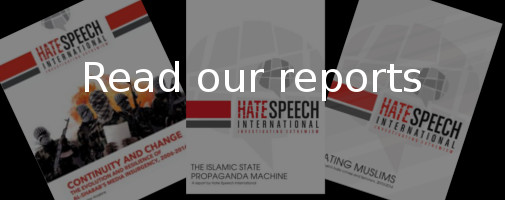The leader of the right-wing extremist Boeremag group, the former military officer Tom Vorster, and a number of other members have been convicted of treason and sentenced to long prison terms in a South African court.
Øyvind Strømmen
Members of the Boeremag (Boer Force) group were convicted of high treason, the first time anyone has been convicted of this crime in post-apartheid South Africa. The charges stemmed from a string of bombings in 2002 in the Soweto area of Johannesburg. The group also had plans to assassinate former South African president Nelson Mandela, witnesses said. Although a bomb was planted on a road Mandela had been planning to take to visit a school in the Limpopo province, the plot was foiled when Mandela took a helicopter to the school instead.
Secret meetings
At the time of the bombings, two letters claiming responsibility were e-mailed to the Afrikaans-language newspaper Beeld. The letters, claiming that the bombing campaign would be the beginning of the end for the ANC governments, were signed “Krygers van die Boerevolk”, or “warriors of the Boer people”. They also featured a red and black logo, Beeld reports. One of the letters demanded the release of 35 arrested right-wing extremists, including Tom Vorster himself. During an extremely long trial, 194 witnesses testified for the state. Those convicted included former engineers, medical doctors and military officers.
Prior to the Soweto bombings, members of the Boeremag group had met secretly at a strip club in Pretoria, discussing various possible terrorist attacks, including shooting down an American Boeing plane over Khayelitsha township outside Cape Town with a missile, according to trial testimony. This plan was said to have been scrapped since white people could be killed, generating “negative publicity”.
The group also fantasized about attacking military facilities, starting a race war, carrying out large-scale ethnic cleansing and establishing a “Utopian” White South Africa, governed by a “conservative” and staunchly Christian military government, witnesses testified. Both the Mandela assassination attempt, the idea of shooting down a Boeing and ideas of creating a “World Trade Centre situation” were allegedly discussed as possible triggers for a desired race war.
“We shall overcome”
When the harsh prison verdicts were given, family members of the Boeremag members reacted with shock and disbelief. Piet Rudolph, a Boer nationalist and member of the Afrikaner Weerstandbeweging, perhaps South Africa’s most well-known far right group, yelled “Ons sal oorwin,”Afrikaans for “We shall overcome”.
Just a few hours earlier, Wilhelm Pretorius, one of the convicted men, had commented on his Facebook page, which he also has used to advertise for his work as a poet under the name Boerius. In a text combining prose and poetry he wrote a “farewell to […] dear friends and compatriots” and discussed faithfulness to the “four-coloured flag”, a reference to the Boer flag. His Facebook page remains open and is currently administered by a female friend. On it, a number of messages declaring support and sympathy, and promising to pray for the convicted men, have been posted. One commenter claims that the “liberal judge”, Eben Jordaan, could expect the same fate as Baal worshippers in the Biblical book of Ezekiel. “Those bastards”, another commenter wrote. “They think they are making an example of our heroes today, but in fact, they are making a big mistake. There are still many Boers out here.”
A press release from Andries Breytenbach of the Boere-Afrikaner Volksraad, a self-declared Boer parliament elected by 23,678 voters, was also posted on the Facebook page, attacking South Africa’s last apartheid-era president, F.W. de Klerk, as “the real traitor of our people”.
While race relations are still problematic in South Africa, extremist groups such as Boeremag have very limited support amongst the country’s white population, which makes up about 10 per cent of the South African population, and which is roughly 60 per cent Afrikaans-speaking. A number of far-right groups do exist, however, and white supremacist ideas are still present in a subculture that included the Boeremag members. Pretorius’s family may serve as an example: his father and two brothers were also convicted in the court case. The father, Dr Johan “Lets” Pretorius, recently wrote that the people involved in Boeremag are “not a bunch of fanatical criminals”, and that “nobody did it for self-enrichment, […] it was true boere preparing and planning with the eye on a crisis of the nation that was to come”. The older Pretorius was arrested in September 2002, with a truck full of weapons and explosives.
In 2010, Wilhelm, Kobus and their third brother, Johan, asked to be considered prisoners of war under the Geneva convention, an application the court dismissed. The three then stated that they considered themselves soldiers of the South African Boere Republic who were engaged in a war.
One of the Pretorius brothers, Kobus, has since renounced his white supremacist views, claiming to be a changed man. In court, psychiatrist Elsabe Steenkamp – witnessing for the defence – described how Kobus Pretorius had received a racist upbringing, “Even though [his father] may not have given the direct order for him planting the bombs, he had planted the seeds since his birth and continuously and constantly repeated the message and the ideologies and convictions on his subconscious, until it became a firm conviction and part of his belief system,” said Steenkamp. “Thus, even though Pretorius justifies his role in Kobus’ life as not having ordered him to being involved in ‘terrorist’ activities, he had actually prepared him all his life for it.”
According to the South African Daily Mail & Guardian, “small, closed communities run by far-right extremists and white supremacists in Europe and the United States” reacted to the verdict by calling for a “rescue” of the Boeremag members. Heroes of the white nation, said a group leader in Alabama, should not be allowed to languish in a black prison while Aryans can still bear arms, the newspaper reported.


 Print Friendly
Print Friendly





No comments yet.